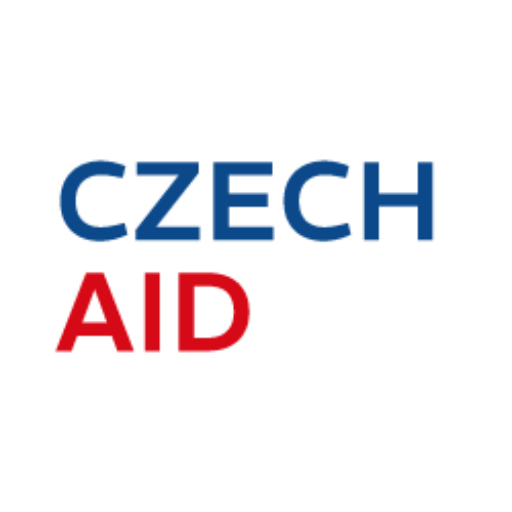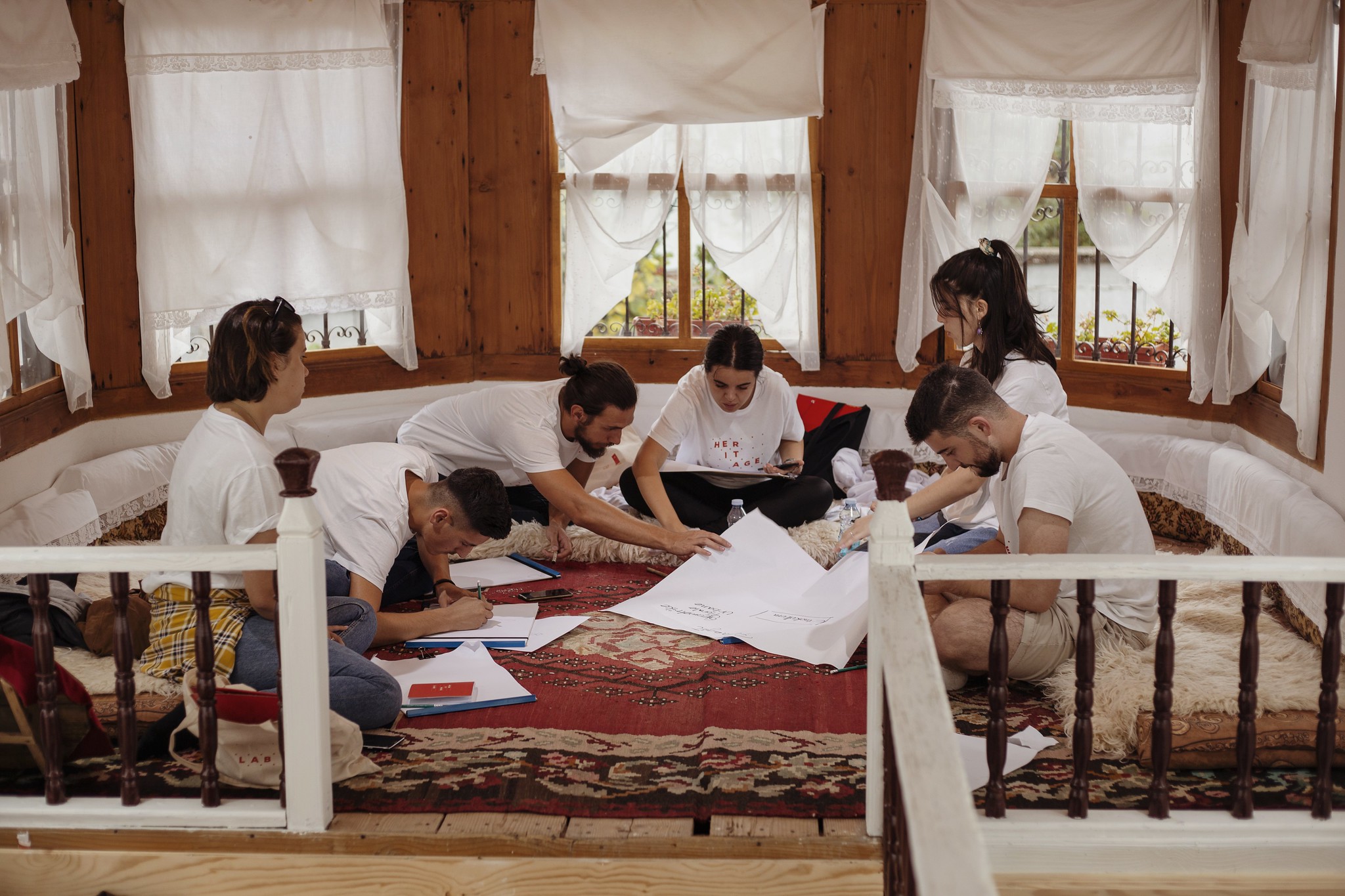Evidence-based policy and service design in Georgia: Creating a platform for dialogue between experts in research and policymakers
The “Research for Policy experimental series” roundtables initiated in November 2019 by UNDP Georgia Innovations Team and the behavioral expert Dr. Karla Koutková under the initiative “Behavioral Science for informed policy decision-making in Georgia”. This initiative supported by the Expertise on Demand of the Czech-UNDP Partnership for SDGs has an overall goal of identifying opportunities for collaboration in applied research for evidence-based policy-making and public service provision. What are its main objectives and how do locals benefit? Read more in an interview with Karla Koutková below!
How has the idea of the Research for Policy roundtable series started?
The idea emerged some time after my first field mission to Georgia in the summer of 2019. On that trip, my task was to map the local ecosystem of researchers working at universities and private think tanks. My assignment was within the Innovations team, and at the time, the team was working on inducing bystander action in cases of gender-based violence (GBV). To put it simply, initial research revealed that people who know of cases of GBV in their proximity, as family members, neighbours and friends, display reluctance to report it to authorities or use a helpline. There are several root causes of such behaviour, such as lack of available services, trust in those services, and also a behavioural root cause, which is a strong, culturally or societally determined belief that outsiders should not intervene if they know of GBV happening among a couple or in a family.
Together with an external partner, the team piloted a project based on experimental research using a randomized controlled trial, combined with an analysis of narratives related to GBV. The point was to investigate which of these root causes actually drives bystanders’ behaviour and how to effectively nudge them towards using services, while at the same time designing those services. Now, the combination of these approaches is pretty novel, but governments across the world, as well as international organizations, have been successfully making use of behavioural insights for several years. In some cases, there is a behavioural unit within government, sometimes it exists independently, or within a big research university.
So one of the goals of my engagement was to identify whether there would be such potential also in Georgia. During my interviews with local researchers, it turned out that so far they had limited capacity for bigger research projects with a societal impact. But that there is now increased interest and a change of priorities to pursue such research. And that also policy- and decision-makers need to be made aware of how to best use these methods in their practice, for reliable results. In November 2019 we organized the first informal roundtable to discuss these issues with a group of academia and think tank representatives.
2. What is the objective of the Roundtable series?
The overall objective of the roundtable discussions is to contribute to evidence-based policy and service design in Georgia by providing a platform for dialogue between experts in research and policymakers.
3. At what stage is the project at right now?
After the initial roundtable in November 2019 at UNDP Georgia premises, and a public gathering hosted by Czech Embassy in Tbilisi in December 2019, we resumed this cooperation after the first wave of COVID-19 pandemic, and so far we had three roundtables. Due to movement restrictions caused by pandemic, roundtables this fall have been transferred to online setting on the Zoom platform. Gradually the network expanded from thirty-two local researchers to now encompass over a hundred decision-makers at government level, universities, think tanks, and now even the private sector. We achieved this through project cooperation with partners who pursue research with directly applicable and actionable results. Incidentally, we have also been largely making use of Czech experts in research who have a past or ongoing project in Georgia through the Experts on Demand or Challenge Fund scheme.
In October, we made a thematic roundtable on Care Economy in Pre-and Post-COVID Times, where Czech experts presented their research on how to best address care provision deficiencies in Georgia at the state and community level and discussed how to translate the current challenges caused by the pandemic into further programming. In November, we had a thematic roundtable on the low uptake of HIV testing Georgia, and the use of mixed methods for policy design. Yesterday, at our December event, we discussed new opportunities for knowledge and technology transfer in a panel debate with a specialized private company from the Czech Republic, heads of research and innovation units at Georgian universities and spin-offs.
4. How can the locals or communities in overall benefit from the initiative?
The feedback we are getting from participants and presenters is very positive, and we have yet to systematize this to inform the future events. However, it is already obvious that the benefits to the local community are multiple. For local research and academic community, there is exposure to new methodologies and actionable research project design, a sounding board for relevant ongoing activities, and a chance to discuss collaboration across disciplines, with an eye on improving service provision in the country. When I first came, not many behavioural scientists that I met – with psychology, sociology, social work or policy background – had been trained in experimental and mixed methods. There was also very little interdisciplinary cooperation and collaboration outside of the ivory tower.
Second, the policymakers who attend the roundtables have a chance to learn how to make benefit of existing research, or how to design applicable research. Through the expanding network, they get access to professionals who can equip them with additional resources. Third, there is a proven positive effect of the very research process on the community level among those who implement it. In the projects I mentioned, it was typically local youth, students and volunteers, who conducted the field research, recorded interviews and distributed surveys related to GBV and HIV. Through this process, as they shared at one of the roundtables, they had a chance to discuss these sensitive issues with their peers and bring in additional awareness.
In addition, we have just started to work with local private sector representatives, who can benefit from applicable research findings in further technology design to address current societal challenges.
5. Where do you see its future potential?/What would you like to see as the result of the project?
I believe it would be beneficial to keep up the momentum in Georgia by shifting the focus to decision-makers towards their greater engagement – together with researchers – to promote actionable research for evidence-based policymaking, better policy and service provision. Now, we have yet to see if a more formalized unit, as I mentioned before, could emerge out of it, and what shape it would take. Since one of the challenges that Georgia faces is brain drain, it would be terrific if this platform in whichever form could mitigate its effects or even counter it. Another potential lies in scaling up the cooperation beyond Georgia, bringing on board similar projects and endeavours from the region or even globally. During the pandemic, technology sped things up immensely and if the roundtables go on in online setting, they have a much wider outreach. Last but not least, I see a big potential also in furthering the Czech-Georgian collaboration by exposing Georgian participants to actionable research taking place in the Czech Republic.


